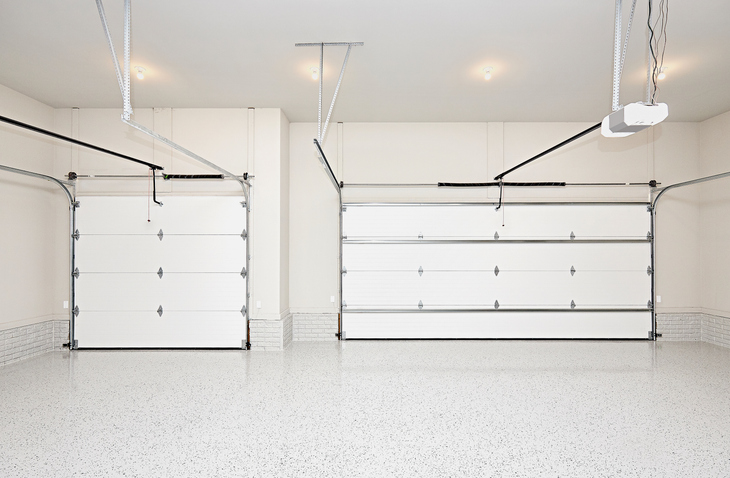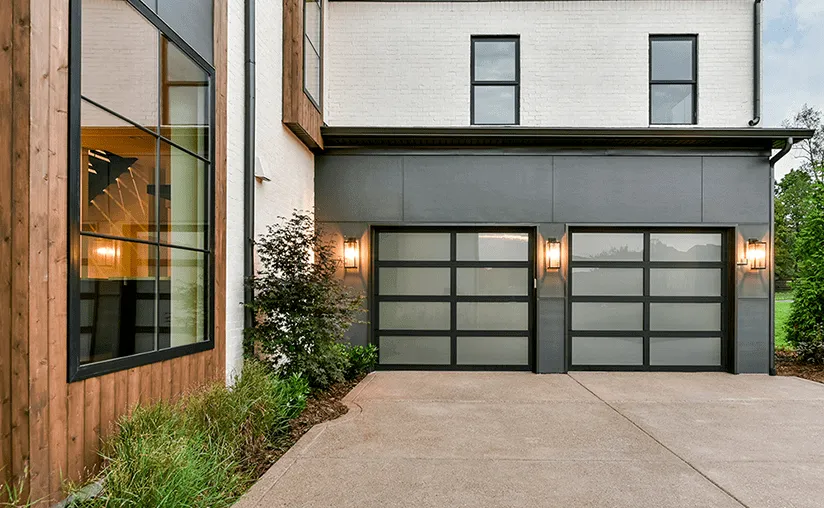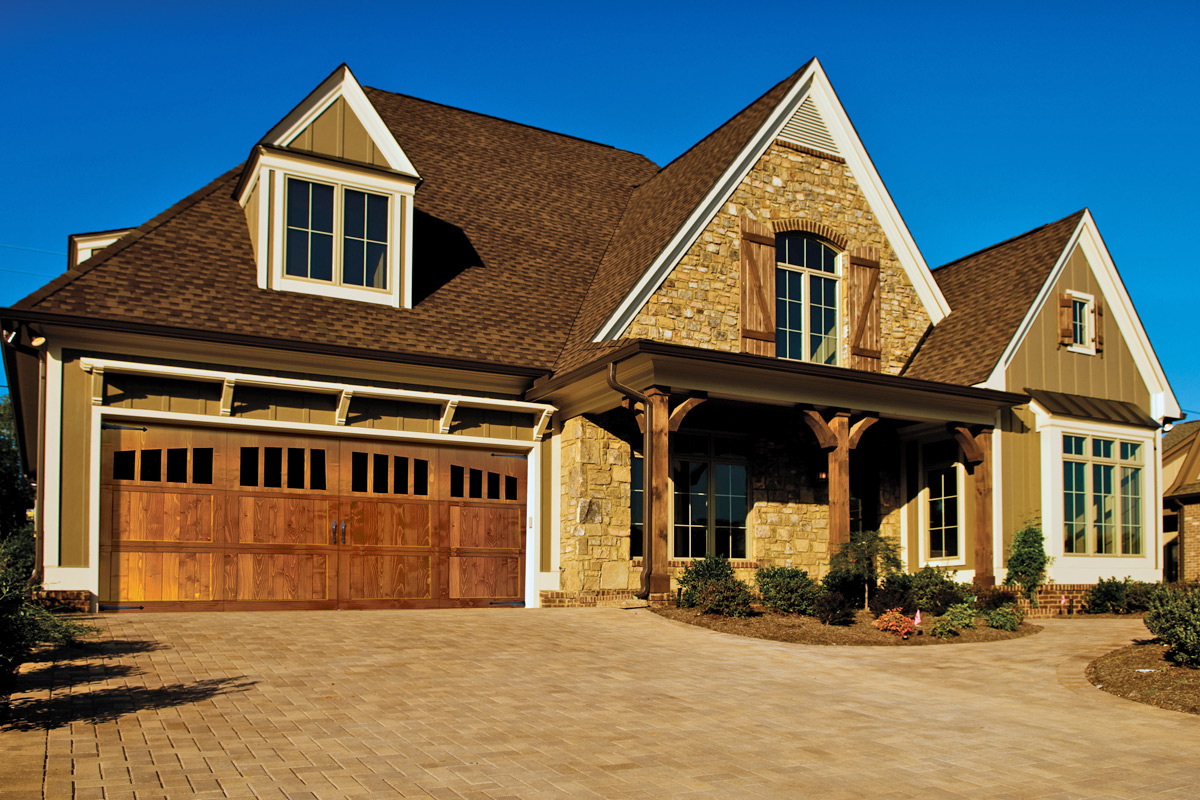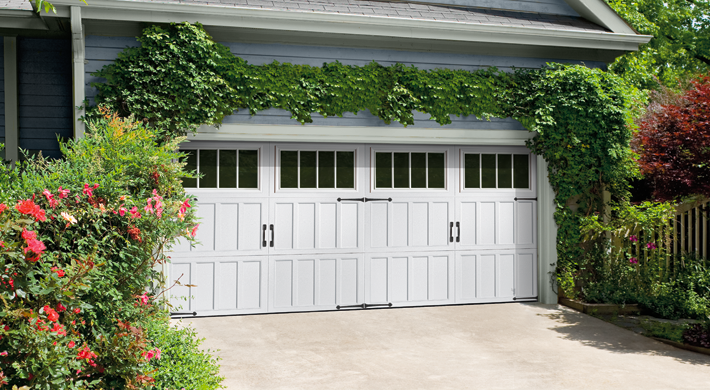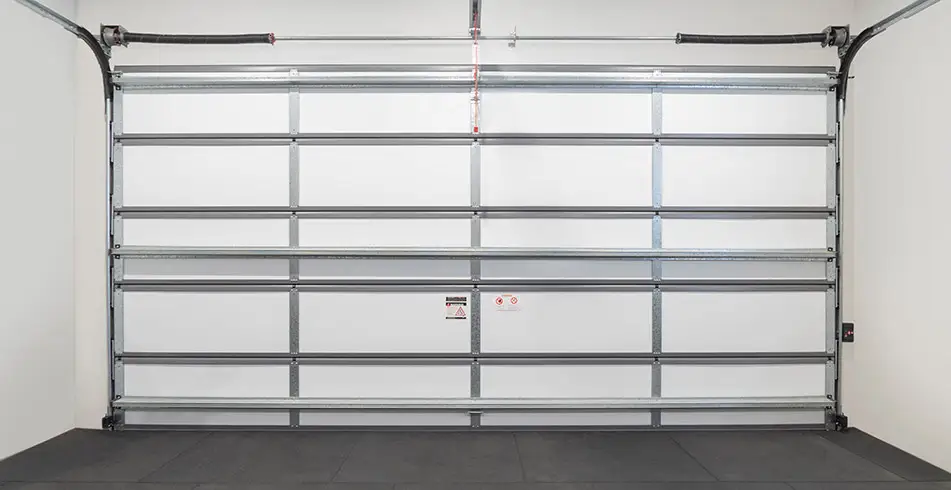Every homeowner wonders at some point, ‘What Size Garage Door Opener Do I Need?‘ Navigating the many sizes and types can be complex, but this guide will help ease the process. Here, well discuss the details and the technology of garage door openers, delivering a tremendous payoff in the end.
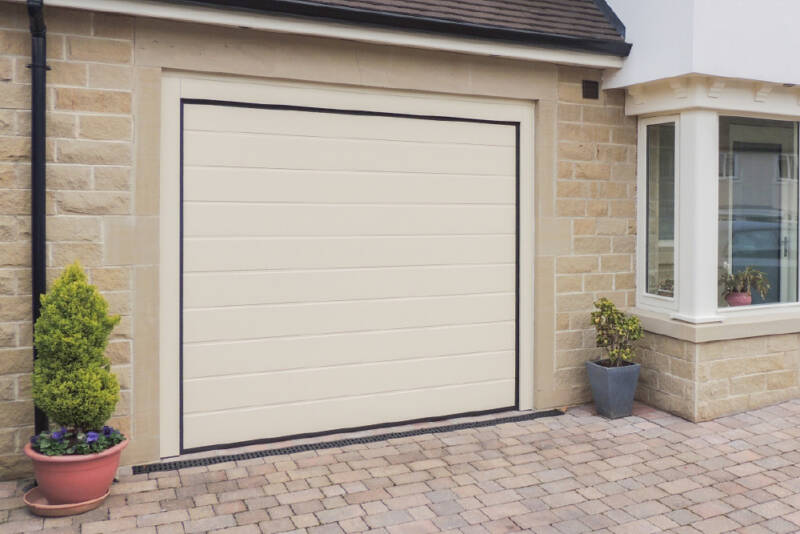
Understanding Garage Door Opener Sizes
When discussing garage door openers, size matters. Choosing the correct size ensures smooth operation and longevity of your system.
Why Size is Important
Ensuring you have the right size protects the mechanics of your garage door system and saves you from costly repairs.
Power and the size of your garage door are directly linked, which is why size matters.
Standard Garage Door Sizes
Understanding standard garage door dimensions helps in selecting the right opener. Most residential garage doors are either single-car or double-car, each requiring different motor strength:
- Single-Car Garage Doors: Typically 8×7 feet or 9×7 feet.
- Double-Car Garage Doors: Typically 16×7 feet or 18×7 feet.
Motor Power and Garage Door Openers
Types of Motors
There are different motor strengths:
- 1/3 Horsepower: Ideal for lighter, single-car garage doors.
- 1/2 Horsepower: Perfect for most standard double-car garage doors.
- 3/4 Horsepower: Suitable for heavier or custom-built garage doors.
Choosing the right motor power extends the life of your opener and ensures the door operates smoothly.
What If My Door Is Unusually Sized?
If you have an unusual garage door size, it’s best to consult a professional.
Modern Technology in Garage Door Openers
Approved and modern technologies enhance your system’s efficiency and security. Types of openers utilize different technologies:
Chain Drive Openers
These are commonly used. They are durable and effective, it’s here technology speaks volumes.
Belt Drive Openers
These provide a quieter operation, but may be more costly upfront.
Screw Drive Openers
These have few moving parts and are known for their tremendous strength.
Features to Look For
Modern openers come with a myriad of features. Choose ones that suit your needs.
Smartphone Integration allows remote operation.
Battery Backup ensures functionality during power outages.
Installation Tips
Hire a professional for seamless installation. If you’re a DIY enthusiast, follow these steps:
- Ensure all parts are provided.
- Read the manual.
- Use proper tools and safety equipment.
Maintaining Your Garage Door Opener
Regular maintenance extends the life of your opener. Follow our guide on regular garage door maintenance.
When to Replace Your Opener
Know the signs of wear and when to replace your opener. Check out more on signs to look for.
Programming Your Garage Door Opener
Need help programming? Read our guide on how to program your garage door opener.
Common Problems and Solutions
Common issues can disrupt functionality. Here are common problems and how to fix them.
Ensuring Safety
Safety features are critical. Ensure your opener includes essential safety sensors and failsafes.
Learn more by visiting USFA – Garage Safety.
FAQs
Q: Do I need to replace my garage door opener if it makes noise?
A: Not necessarily. Noisy operation can often be fixed with maintenance or part replaceme:max_bytes(150000):strip_icc()/troubleshooting-common-garage-door-problems-1398186-Hero-4dfa7f383ed84319a719d6d934a57d4b.jpg) nt.
nt.
Q: Can I install a garage door opener myself?
A: Yes, but professional installation is recommended for the best results and safety.
Q: How do I know what size garage door opener to get?
A: Consider your garage door’s dimensions and weight when selecting motor strength.
Conclusion
We hope this guide answers your question, ‘What size garage door opener do I need?‘ Select the right size and technology for efficient, long-lasting operation. Be informed, and your choice will prove beneficial for years.





